| |
 |
From the Director:
Mediation Shouldn’t Endanger Anyone
TV
viewers of a certain vintage will remember the hit show “Hill Street
Blues,” a landmark serial police drama set in a gritty precinct of an
unidentified U.S. city. For several seasons, virtually every show
began with a shift roll call, and Sergeant Phil Esterhaus would wrap
up every roll call with his trademark admonishment to his assembled
cops: “Hey (insert dramatic pause) ... let’s be careful out
there.” It was a paternal farewell and an ominous reminder of the
grave danger the cops faced every time they marched off to wage peace
on the streets. Viewers knew what was coming, yet they waited for him
to say it every time.
That
warning phrase came bubbling up through my memory as I read about two
people being shot and killed in Phoenix at a mediation on January 30.
According to news reports, the 70-year old gunman was a party to a
garden-variety business dispute mediation, which was being held at a
law office in a business park. Sometime during the session, one of
the parties pulled out a handgun and opened fire, killing the opposing
party and opposing counsel and wounding one bystander before escaping
and shooting himself dead. The shooter apparently had no history of
violent behavior, although he is alleged to have had a temper and had
filed 10 or more prior civil lawsuits against various defendants.
I
bet many of the circumstances of this terrible story could describe
nearly every mediation you have done outside of a courthouse –
seemingly routine issues, law office, anonymous office park, parties
with no known history of violence. Yet, in Phoenix, three mediation
participants were killed. And that should give you and every ADR
practitioner pause. That could be you. That could be me.
Let’s face this discomforting fact: ours can be a dangerous
profession. After all, our job is to intervene among people who are
in crisis, who are often angry, frustrated, and agitated or may become
so during the mediation. If they’re in a lawsuit, it is likely one of
the worst experiences of their lives. They usually are not thinking
clearly or rationally in the context of the dispute, and they are so
stressed that if they feel at all threatened, they may react with
aggression. Yes, even if all of your participants wear expensive
suits. You can never be sure what kind of situation you are walking
into.
That’s why you – the trained mediator, protector of the process, and
perhaps the only person in the room who is thinking clearly and
rationally – have to ensure that sessions are conducted in as civil
and productive a manner as possible. Most of the time, things go
well. But mediation participants are predictably unpredictable. Even
if you do everything right, you still cannot truly control the
behavior of others. For example, a very experienced colleague was
followed home last year and confronted in her driveway by an angry
mediation participant. Her kids were at home. Think about that for
minute.
Georgia-approved mediation trainings are required to include
instruction on handling escalating tension and violence in mediation.
You can see why such training is mandatory. But all the training in
the world cannot protect you or the participants if someone draws a
weapon in mediation.
Which brings to mind this axiom: where you mediate is as important as
how you mediate. We have always said that mediations are safest in
courthouses with functioning metal detectors and security screening
systems that are staffed by law enforcement and where armed deputies
or marshals are but a few steps away. Obviously not every mediation
can be conducted in such a secure setting. But if you routinely
conduct mediations in office parks and office buildings with no
security measures and no security personnel on site, you need to be
aware that there is an elevated risk of danger to you and the
participants. The comfort and convenience of mediating in an office
setting comes with a cost. (Of course, we know that even secured
courthouses cannot guarantee safety. Eight years ago, on March 11,
2005, three people – a judge, a court reporter, and a sheriff’s
sergeant – were killed in the Fulton County Courthouse by a man on
trial for rape who overpowered a deputy and took her gun.)
You
should also be aware that your physical safety can be jeopardized by
information you post in the digital world. Michele Gibson, our
marketing columnist and producer of BeNeutral, wrote in the
May 2012 issue about how people can inadvertently make personal
information available on the Internet.
Short of mediating in a fortress, what can you do to increase the
likelihood that your mediation will begin and end safely? Here are
some tips that come to mind (this is by no means an exhaustive list):
|
• |
Be
explicit with participants about your policy of not bringing any
weapons to mediation, remind them of it when they arrive at the
mediation, and ask if they have brought any weapons; |
|
• |
Be
sure your court ADR program has screened the case for domestic
violence or abuse issues; |
|
• |
Ask
if court personnel or ADR program staff have had any prior contact
with the participants, and if so, what their impressions were; |
|
• |
Pay
attention to your instincts. If something feels wrong, it’s
likely to be; |
| • |
Always seat yourself so that you have clear access to the door and
an exit; |
|
• |
Know the layout of the mediation site, know what resources may be
available to you on site, and know how to get help; |
| • |
Have your phone with you always so you can call for help; |
| • |
Talk to your office landlord and other tenants about increasing
security measures; |
| • |
Consider installing panic switches in rooms routinely used for
mediation; |
|
• |
Review your training on how to recognize and handle tension and
violence in mediation; |
|
• |
Use
the process to diffuse tensions (use caucus, take breaks, have
snacks and refreshments available) especially in mediations that
stretch more than an hour or two; |
|
• |
Set
a policy that mediation participants must remain on the premises
during any breaks or caucuses so that weapons cannot be retrieved
from vehicles or outsiders; and |
|
• |
Take and maintain control over the process, and if things get hot,
maintain neutrality and remain calm, and do not add to the tension
through your own actions. |
And
hey ... let’s be careful out there. Please.
Shinji
Morokuma, Director, GODR
gaodr@godr.org
|
|
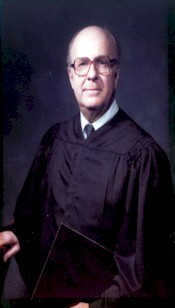
|
Chief Justice Harold
Clarke was Visionary Behind Courts’ ADR System
ADR in
Georgia lost one of its pioneers when former Georgia Supreme Court
Chief Justice Harold Clarke died February 28. In the late 1980s,
Justice Clarke envisioned an ADR system in the courts that could help
relieve crowded dockets while providing litigants and attorneys with
productive and cost-effective alternatives to trial.
In
1990, he and then State Bar of Georgia President Evans Plowden, Jr.,
created the Joint Commission on Dispute Resolution to study the idea
of a court-connected ADR system. Jack Watson, a partner at the law
firm of Long, Aldridge and Norman, was the Commission chair. In 1993,
Justice Clarke’s vision became reality when the Supreme Court created
the Georgia Commission on Dispute Resolution and its executive arm,
the Georgia Office of Dispute Resolution. Watson served as the first
Chairman of the new Commission and Plowden served as co-chair.
The
system that Justice Clarke created started with just a few courts in a
few counties, but in 20 years has grown to cover courts in 121 Georgia
counties and to help resolve tens of thousands of civil and criminal
cases a year. Of all of his numerous professional accomplishments,
Justice Clarke believed that our court-connected ADR system would be
his most important legacy. We are grateful for his foresight and
fortitude.
If
you would like to read more about Justice Clarke, please click on the
links below:
Obituary in the Daily Report:
http://tinyurl.com/d4z2k95
Letter to the Daily Report editor by Edith B. Primm, Esq., and Ansley
Barton, Esq.:
http://tinyurl.com/crbexrc
Obituary from the Atlanta Journal-Constitution:
http://tinyurl.com/dx6kfyg
Letter to the Daily Report editor by State Bar of Georgia President
Robin Frazer Clark:
http://tinyurl.com/d8huqnz
|
|
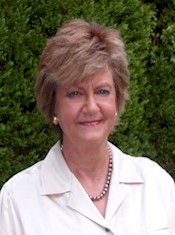 |
CaseWatch for Mediators:
Trial Courts Have Much Discretion in Interpreting Terms of Divorce
We have reminded mediators over and over about how important it is
that mediated agreements contemplate all contingencies and answer as
many “what happens if” questions as possible. We are going to remind
you again. In this month’s CaseWatch for Mediators, Mary Ellen Cates,
Esq., divorce attorney and registered mediator, features a Supreme
Court case in which the trial judge was forced to fill in the blanks
of a divorce settlement, with unexpected consequences for the parties.
|
|
 |
CaseWatch for Arbitrators:
Under GAC, Court
Authority to Modify Awards is Limited
One thing about arbitration awards: once they are made, there are few
grounds for changing the terms. That finality of resolution is both a
benefit and a burden of arbitration depending on whether you like the
award of not. In this CaseWatch for Arbitrators, John Allgood, Esq.,
veteran attorney, registered mediator and arbitrator, highlights a
lawyer fee-arbitration case where the trial court tried to modify the
award, but was prevented on appeal.
|
|
 |
Marketing Tip:
Quick and Easy Ways to Build Your Marketing Lists
Does the thought of putting together your e-newsletter mailing list
make you cringe? ANd if you already have a list, are you a bit
lost on just how to get your newsletter out to them without all of
your work ending up in spam filters? In this month's Marketing
Tip, master marketer and mediator Michele Gibson gives you some easy
and useful tips on building and using your e-marketing lists.
|
|
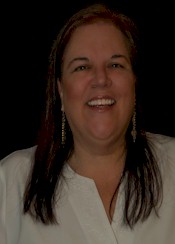 |
New Child Support Commission Attorney
Please welcome Patricia K.
Buonodono, the new
Director of the Child Support Project. She takes over from Alice
Limehouse, who left to pursue private practice. Pat is a mediator
registered in General Civil, Domestic Relations, and Domestic Violence
Mediation, and she is also a lawyer who ran her own legal practice for
16 years, primarily in family law and
child welfare.
As she transitioned to a
strictly child welfare practice, Pat served as a Fellow for the
Supreme Court of Georgia Committee on Justice for Children’s Cold Case
Project, studying cases to improve outcomes and policies regarding
children in foster care. Pat began working as Managing Attorney for
Education for the Committee on Justice for Children in fall of 2010.
Pat is one of Georgia’s first class of Child Welfare Law Specialists,
having earned that certification in 2010.
Here’s Pat’s contact
information:
Patricia K. Buonodono, JD, CWLS
Director, Child Support Project
Office: 404-463-0044
Fax: 770-342-4745
patricia.buonodono@gaaoc.us
|
|
 |
Child Support
Calculator Updated
The Georgia Child Support Commission staff is pleased to report that
version 8.7 of the two electronic Excel child support
calculators has been successfully deployed to the Child Support
Commission website (www.georgiacourts.gov/csc/).
The “Downloadable Electronic Worksheet (Standard)” and “Downloadable
Electronic Worksheet with Data Entry Form” are ready for download and
use. Please share this information with mediators and ask them to
download version 8.7 for immediate use.
On January 9, 2013, version 8.7 of the Excel electronic Child
Support Calculators was released. The Child Support Commission,
pursuant to O.C.G.A. §19-6-53(a)(3)(B)(iv), has the statutory
responsibility to adjust formulas annually that are used in
calculating applicable Social Security (FICA) taxes for
self-employment as related changes occur in the federal tax laws. As a
result, the formulas used for calculations on Line 3 of Schedule B
have been updated. In addition, a Mac informational button was added
to the Child Support Website, allowing Users to quickly obtain
information necessary to run the Excel Child Support Calculators on a
Mac.
If you have any questions concerning this updated version of the Child
Support Calculators, please contact:
Elaine Johnson
Executive Program Manager
Staff, Georgia Child Support Commission
Office: 404-463-6383
Blackberry: 404-210-5896
Fax: 770-344-5568
elaine.johnson@gaaoc.us
Patricia K. Buonodono, JD, CWLS
Director, Child Support Project
Office: 404-463-0044
Fax: 770-342-4745
patricia.buonodono@gaaoc.us
|
|
 |
Late Renewal Season
Runs Through April 30, 2013
The 2012 on-time renewal season ended December 31, 2012. Any renewal
applications submitted after the on-time renewal deadline of midnight,
EST, December 31, 2012, will be considered late, and late fees will
apply. The late renewal deadline is midnight, April 30, 2013.
Neutrals who do not renew by that date will be considered inactive.
All neutrals will need to renew except those few whose registration
expiration date is 1/1/2014. Check your information by logging into
your neutral account. Find login instructions
here. Renewal information and instructions can be found at the
big purple box on our website.
|
**Always send important documents to GODR via a service that
offers
tracking and delivery confirmation.** |
Alert: Renewing neutrals will have an opportunity to give us feedback
on the registration renewal process and on their contacts with our
office. Please look for the link to the online survey in an e-mail.
If you can spare a moment, please take the survey and tell us your
thoughts. Thank you!
|
|
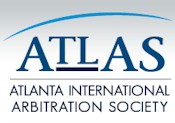 |
2013 Conference of the Atlanta International Arbitration Society
Registration is now open for the Atlanta International Arbitration
Society’s 2013 conference, “Convergence and Divergence in
International Arbitration Practice,” April 21-23, 2013, at the Four
Seasons Hotel in Atlanta. Among the topics will be:
|
• |
A
Peek Behind the Curtain: A Roundtable Featuring Some of the
World's Leading Arbitrators |
|
• |
Obtaining
Evidence in the U.S. for Arbitration Abroad: Practical Lessons on
When and How to Use Section 1782 |
|
• |
Third
Party Funding of Arbitration: The Future of Global Dispute
Resolution or an Ethical Black Hole? |
|
• |
What
is My Award Worth: And What Can I Do Before, During and After an
Arbitration to Make Sure I Get Paid? |
|
• |
Crafting
Dispute Resolution Mechanisms in Cross-Border Business Contracts:
Leveraging Party Autonomy to Reduce Risk, Improve Outcomes and
Lower Costs |
|
• |
Fighting
(and Defending) the Leviathan: Arbitrations Involving Sovereigns
and State-Owned Entities |
|
• |
Arbitration
and Asia |
|
• |
Managing
A Procedural Menu With Common Law and Civil Law Offerings - All
About "Americanization" and "Civil-ization" |
For more information and registration, see this link:
http://tinyurl.com/d9upd85
|
|
 |
GODR MEMBER BENEFIT SPOTLIGHT –
PET INSURANCE
VPI Pet insurance - 5% discount for members and employees of members
GODR Registered Neutrals and employees of members seeking medical
coverage for their pets may qualify for a 5% group discount with the
leader in Pet Health insurance, VPI Pet insurance. A VPI Pet insurance
policy helps pay for your pet's treatments, surgeries, lab fees,
x-rays, and much more. VPI provides peace of mind knowing you can care
for your pet no matter what the cost.
| ► |
Group discount of 5% |
| ► |
Freedom: Free to use
your choice of licensed veterinarian (no pre-approval necessary). |
| ► |
Flexibility: VPI's
plans are licensed in all 50 states. |
| ► |
Additional savings:
Receive discounts when enrolling multiple pets - up to 5% and 10% |
| ► |
Extras: Enjoy
discounts on pet products and services, a policyholder newsletter,
online support, and more. |
Get a Quote Online >
Program is
administered through VPI Pet Insurance, the nation's oldest and
largest provider of Pet Health insurance.
If links in this email are not working,
please visit
www.memberbenefits.com/godr
Products sold
and serviced by BPC Financial, the administrator of the Georgia Office
of Dispute Resolution (GODR) Insurance Programs. GODR is not a
licensed insurance entity and does not sell insurance.
|
|

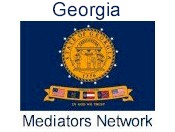
|
Publicly
Available Resources for Georgia ADR Professionals
We encourage you to visit the
blog created by Georgia State University law professor Doug Yarn
and GSU law students Alex Salzillo and Alicia Mack to inform and
encourage discussion. Please add it to your reading list, send the
link to your colleagues, and visit often. The address:
http://georgiaadr.wordpress.com/
And
don’t forget the
Georgia Mediators Network, a great Facebook resource for the
latest mediation news and articles from around the world. The page
has been visited tens of thousands of times in just the few short
months it’s been around. Use the information there to pump your own
professional web pages and your expertise. The Georgia Mediators
Network is the brainchild of registered mediator Michele Gibson, our
marketing columnist and newsletter producer. |
|
 |
Benefits: Exclusive
Insurance Products for Registered Neutrals
Georgia-registered neutrals are entitled to participate in several
insurance and retirement programs that have been designed specifically
for them. If you need insurance, are planning for retirement, talk to
the experts at
BPC Financial. They manage our new exclusive insurance and
retirement program, and they can advise you on your insurance needs
and help you find good deals on major medical insurance, healthcare
savings accounts, dental and vision insurance, term life insurance and
more. Registered neutrals receive the benefits of underwriting
concessions, enhanced benefits, or reduced premiums and fees compared
to shopping for similar products on the open market. Check out the
GODR Registered Neutrals Insurance and Retirement Programs website.
We’ve also arranged for special benefits on professional liability
insurance for registered mediators and arbitrators with
Complete Equity Markets. See our
website for more information or contact
Betsy Thomas, 800-323-6234, ext. 472, and tell her you’re a
Georgia registered neutral!
|
|
 |
Upcoming CE and
Training Offerings
Check our
website for the latest CE and training offerings. Remember, any
ADR-related training you take counts as CE as long as you took it
since your last renewal or your initial registration, whichever comes
later. Lawyers, any CLE you took during that same time period counts
as CE. Likewise, judges and CJE. Accountants and other professionals
with CE requirements, same thing.
And remember, we have posted three videos on our website that
registered neutrals can watch for free to earn CE credit. Each video
is one-hour long. Neutrals are free to watch the videos as many times
as they wish, but we can only award 1 CE hour credit for each video
once a renewal season. Please note the date you finished viewing each
video so you can report it on your renewal form. Look for the link,
“Continuing Education Videos,” in the main menu of our website.
For more information on what qualifies for CE, please see the
“Help! I Need CE!” link on our website.
|
|
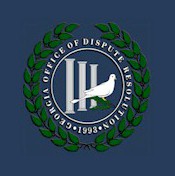 |
Be Neutral
Back Issues Available Online
Be
Neutral
is sent monthly to all registered neutrals, generally at the beginning
of the month. If you missed an issue, our back issues are posted at
the bottom right of our website, under
“Newsletter Archive.” Please take a look. If you know people who
want Be Neutral, please direct them to our subscription box at
the bottom right of our
website, where they just need to enter their e-mail addresses.
Please forward this newsletter to anyone who might be interested in
ADR in Georgia courts. Forward it just as you would any other
e-mail. If folks who are not registered neutrals want to receive the
newsletter free of charge, they can submit their e-mail addresses in
the subscription box at the bottom right of our
website. And sending us feedback is easy – just reply to this
e-mail as you would any other e-mail. We want to hear from you!
|
|
|
Spread the Word
Please forward this newsletter to anyone who might be interested in ADR in Georgia courts. Forward it just as you would any other e-mail.
If folks who are not registered neutrals want to receive the
newsletter free of charge, they can use the subscription box at below this
text or submit their e-mail addresses in the
subscription box at the bottom right of the home page of our
website. And sending us feedback is easy – just reply to this
e-mail as you would any other e-mail. We want to hear from you !
|
|

|
|
|